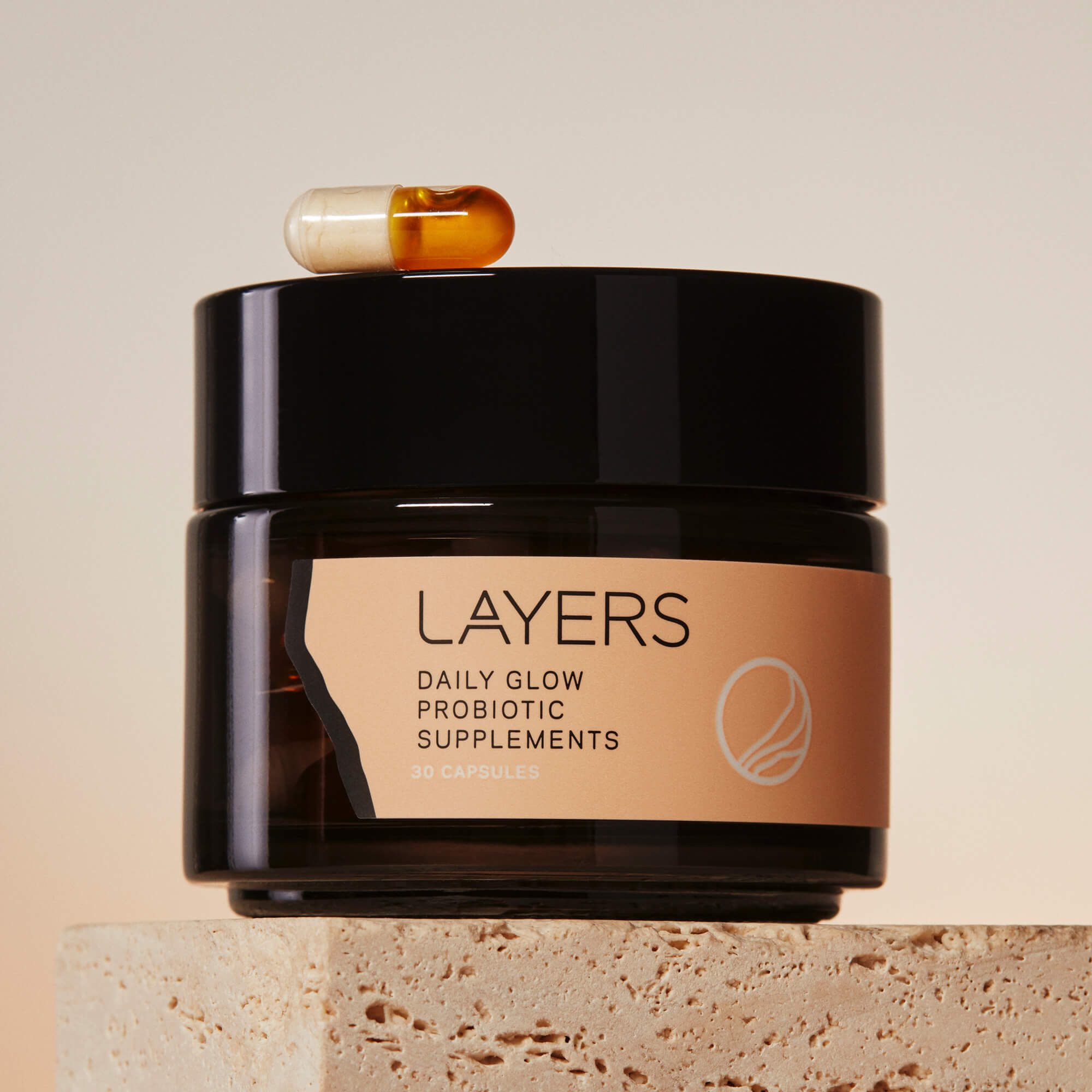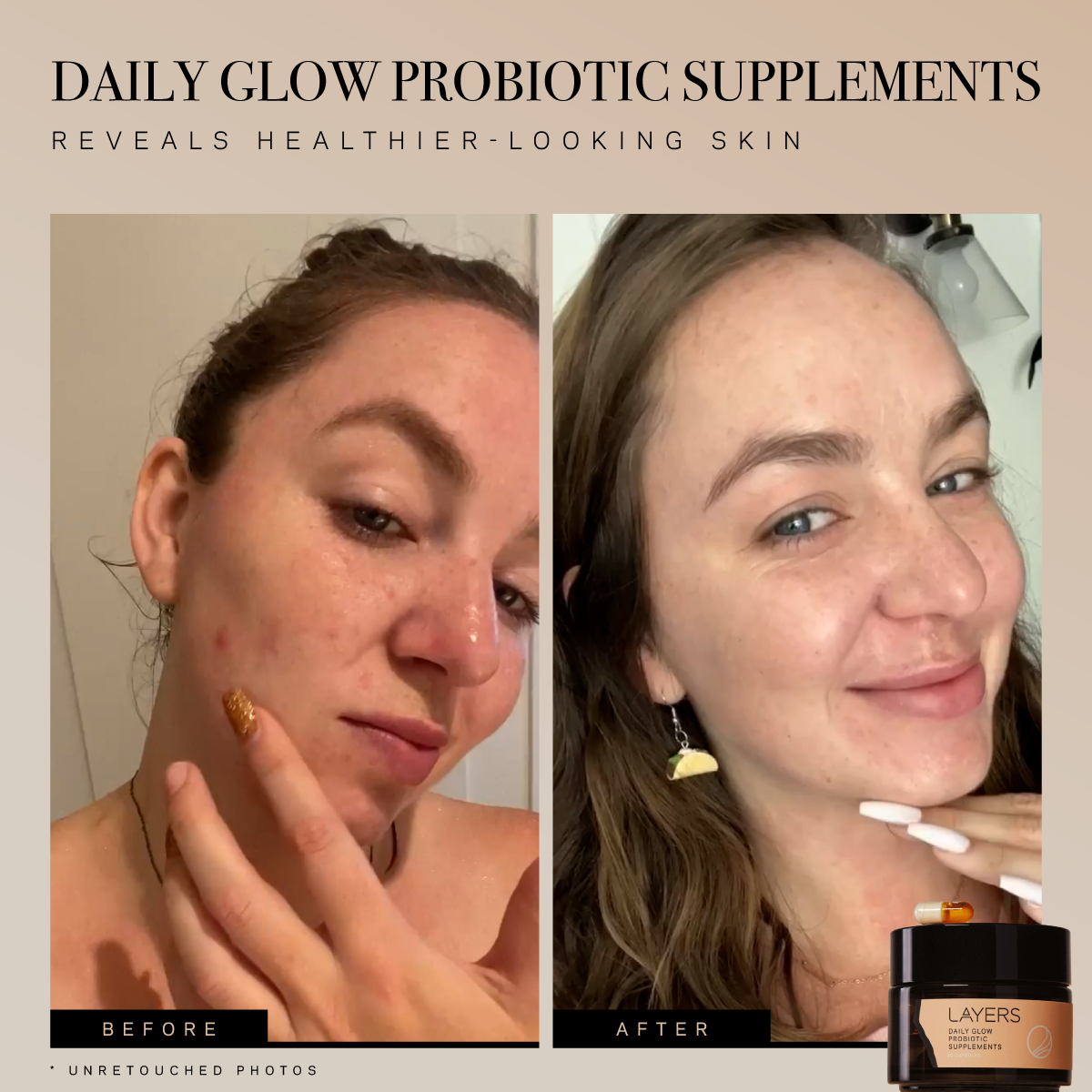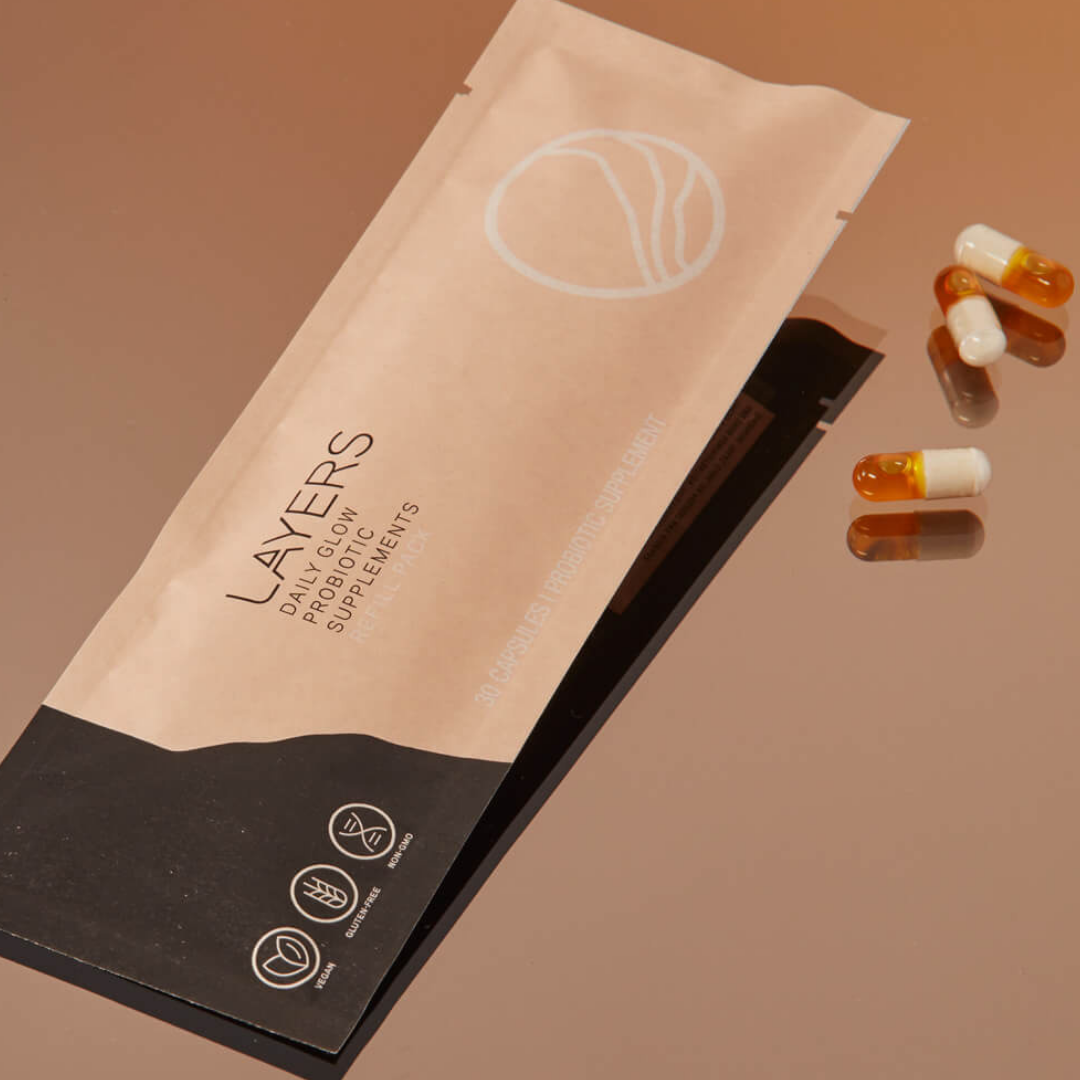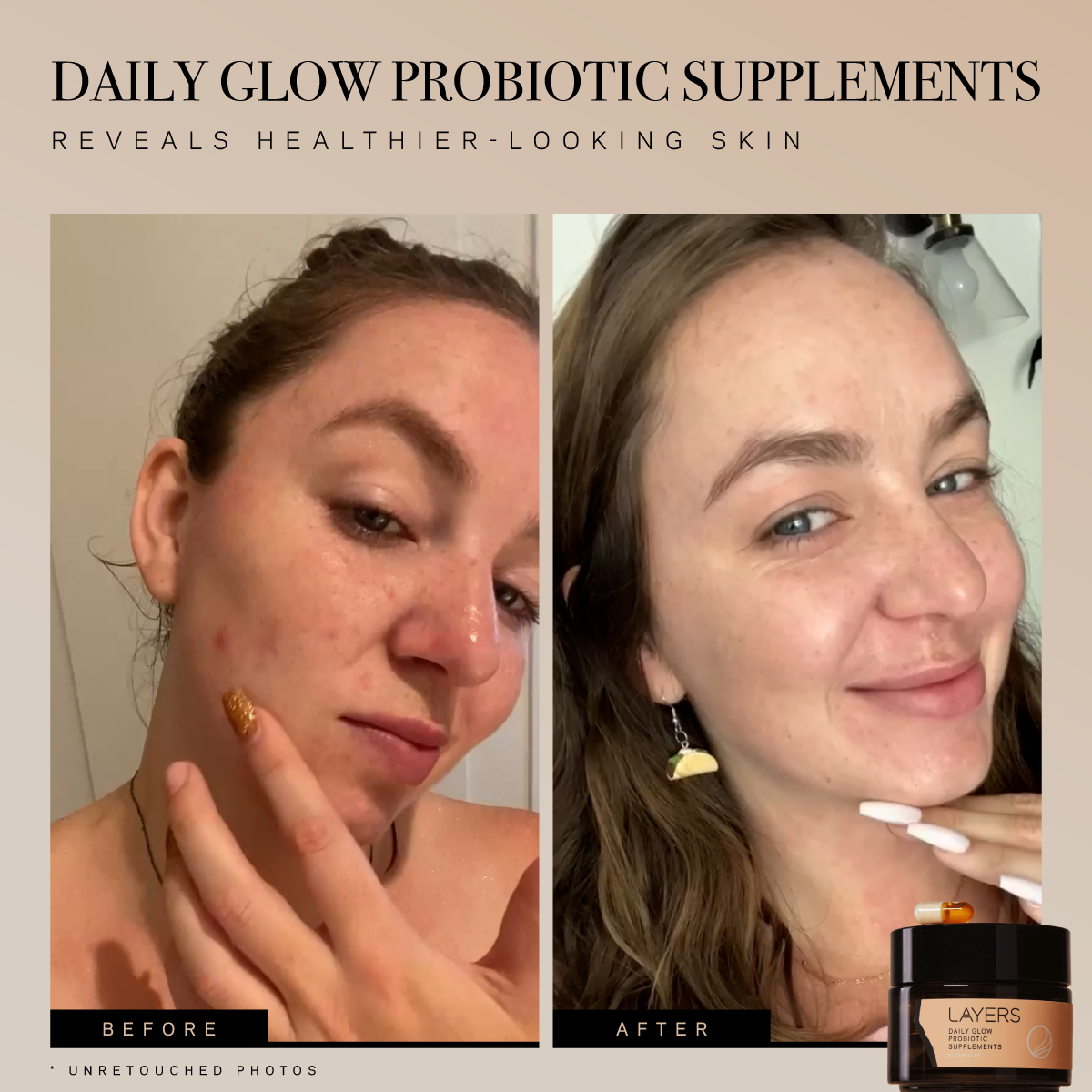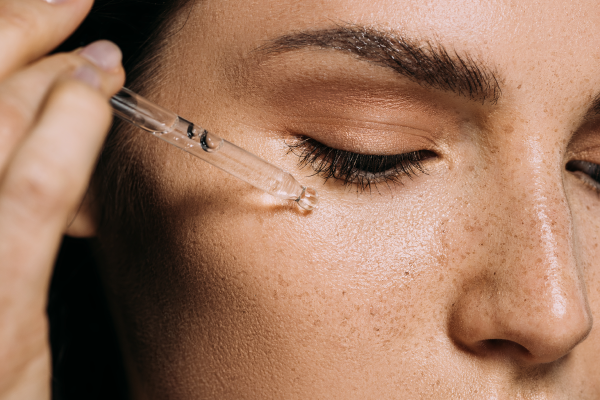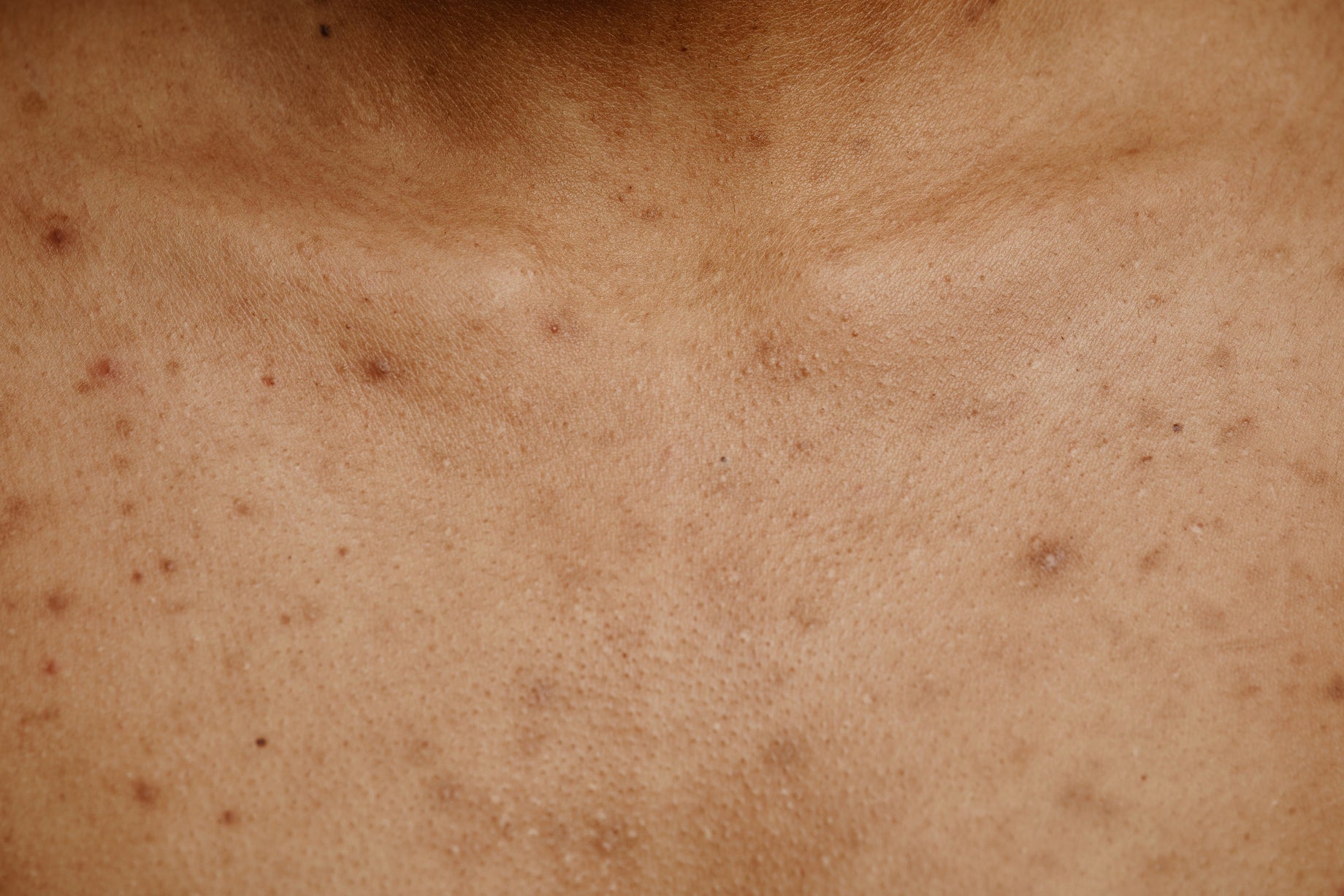The most effective ways to strengthen your microbiome and improve your skin health. It’s time to stop being so sensitive.
Do you feel like the slightest disruption to your routine causes your skin to go into panic mode? Seeing the rest of the world experimenting with all of the latest product trends, rotating regimens as they please… it’s almost as frustrating as your flare-ups.
Highly reactive skin can sometimes be a signal from your body that there’s a more serious underlying problem. Your first steps should be visits to your dermatologist and your doctor if you’re suffering from the most common skin sensitivities, especially if they suddenly appear out of nowhere.
THE MOST COMMON SIGNS OF SENSITIVE SKIN
Here are the telltale signs to look out for:
-
Redness
-
Flaky patches
-
Rough patches
-
Peeling
-
Swelling
-
Open sores
WHAT CAUSES SENSITIVE SKIN?
Painful, itchy, and flaky skin aren’t simply “things you’re born with”. Yes, maybe they are issues you’ve had since you were born, but that doesn’t mean you’re destined to deal with them for the rest of your life. Finding the right solution can be tricky, but if you’re patient through the process, you will eventually be able to single out the culprit.
Possible Causes of Sensitive Skin:
-
Rosacea: This is a skin condition that shows up as flushed cheeks or redness and swelling in the face and sometimes around the neck. The cause is still being researched, but one hypothesis is that it’s the result of an overactive immune system. People with fair skin tend to be more susceptible.
-
Contact Dermatitis: This happens when your skin comes into contact with something it doesn’t like. It could be a skincare product, a hair product that touches your skin, the detergent you use on your clothes, or a fragrance.
-
Eczema: A scaly, itchy rash and extreme flaking can be signs of eczema, also referred to as Atopic Dermatitis. The causes are thought to be genetic and environmental, but we don’t yet know for sure.
-
Allergies: Another side-effect of an immune system gone haywire can be allergy-related skin issues. Redness and itching can be reactions to contact with pollens in the air, so your body releases T-cells and your skin becomes red and itchy.
-
Hormonal Imbalances: You remember puberty, right? Hormonal shifts can cause an overproduction of sebum, which leads to clogged pores. When your pores can’t breathe, then those red bumps that we so lovingly refer to as acne start to rear their little, annoying heads.
TIPS FOR CALMING SENSITIVE SKIN
Luckily for anyone out there who has sensitive skin, the beauty industry arc is leaning towards more botanical-based skincare ingredients. The 57-ingredient product days do seem to be going out of fashion, and that’s a good thing. The more chemicals, the more opportunities for your skin to throw a tantrum. And your skin is right to reject a lot of these harsh, overproduced, chemical-packed concoctions.
It’s not just our beauty products that hide harsh chemicals. It’s also the air we breathe and the things floating in it that come into direct contact with our bodies. In the same way, pollen can irritate our skin, pollution can cause many people to develop skin sensitivities. The best skincare products are not only going to combine the best of science and botanicals, but they should also help fortify your skin, strengthening the barrier between you and the pollutants you encounter every day.
3 Tips to Soothe your Skin and Defend it from the Elements:
Become an ingredient mastermind
Read labels. It’s that simple. If a product has a laundry list of ingredients that you can identify or pronounce, then it’s best to move on. You can check products instantly with ingredient checkers like INCI Decoder and EWG Skin Deep
Use only anti-inflammatory skincare
Look for products that contain calming ingredients like aloe vera, ceramides, green tea extract, pomegranate extract, milk thistle, chamomile, Irish moss, orobanche rapum, and meadowfoam oil. These are botanical ingredients that provide your skin with various benefits without irritating it.
Balance your microbiome
Your microbiome determines how resilient your body is to the elements. It dictates your immunity, influences your mood and energy levels, and even determines how well you sleep. The “brain” of your microbiome is your digestive system, referred to as the gut-brain axis. If your digestion domino falls, then it will affect every aspect of your body, inside and out. Probiotics have been shown to be effective in treating conditions like atopic dermatitis, acne, and rosacea. Taking a daily oral probiotic like Layers Daily Glow Probiotic Supplements is a smart defensive measure that will infuse your gut with more good bacteria.
Sensitive skin doesn’t have to feel like a prison sentence. It’s a condition that just needs time and attention to identify the cause and find the best, more effective sources of relief. The Layers Probiotic Skincare line is clean beauty at its best: no parabens, mineral oil, petroleum, silicone, phthalates, sulfates, formaldehyde, triclosan, gluten, or anything else that’s known to cause irritation to sensitive skin. It’s the very best of science-backed ingredients, offering a unique inside-out approach to skincare. Take care of your gut, and your gut will take care of you!

